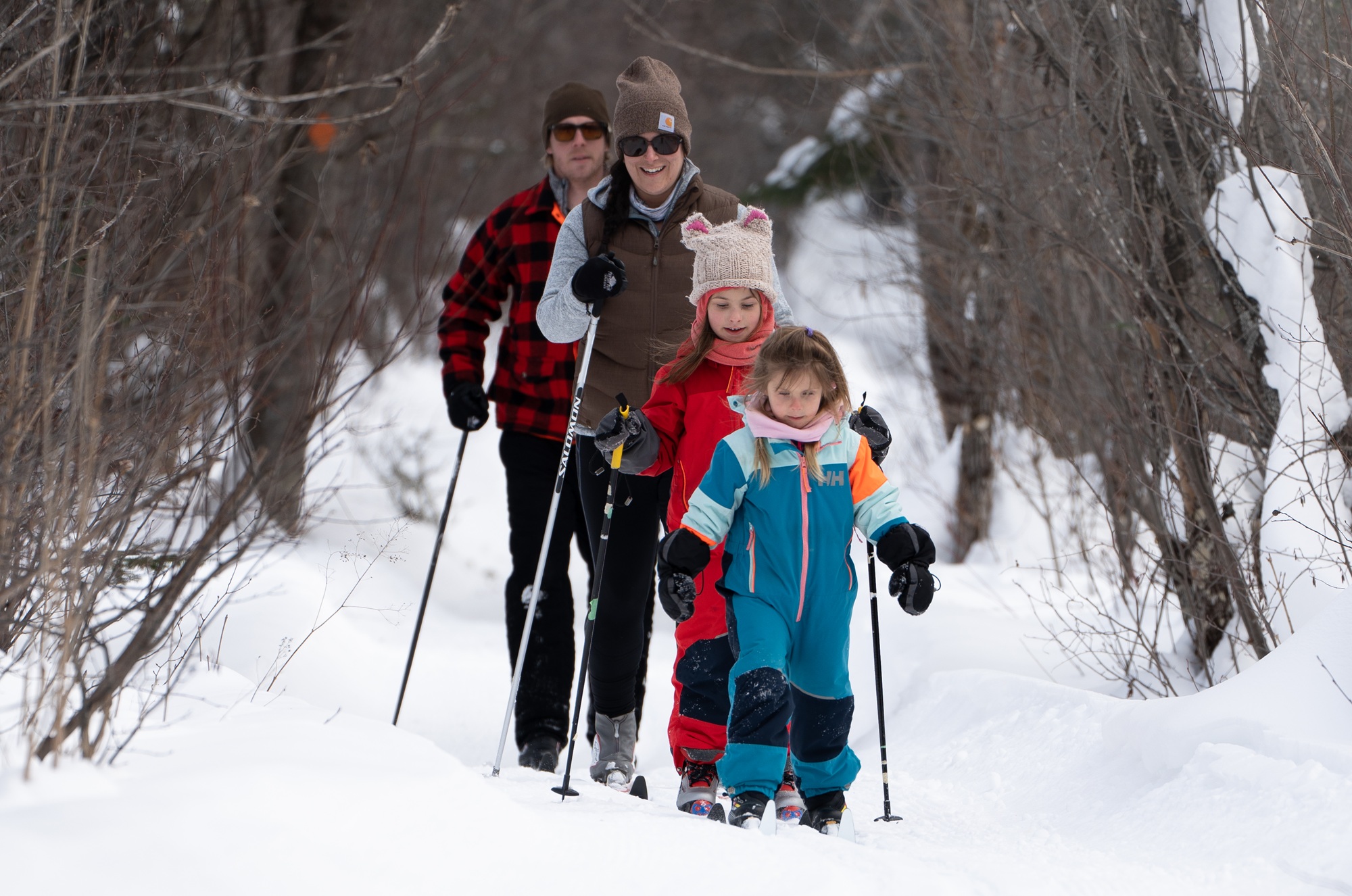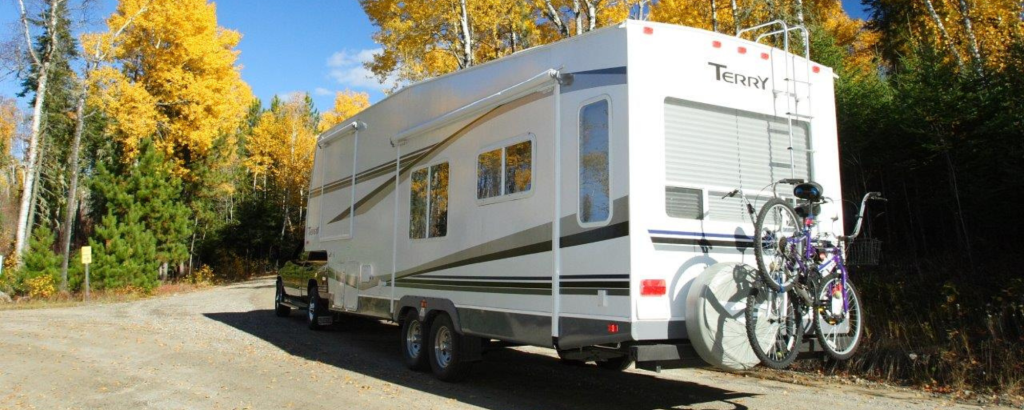
Now that fall is upon us, it’s time to get your RV ready for winter storage.
Planning on using it a couple of times over the winter season? It’s still important to get your RV ready to protect it from the cold.
Even climate-controlled storage areas can lose power. The last thing you want is to spend the first days of spring repairing broken pipes when you’re raring to hit the road.
Here are our 5 tips for winterizing your RV!
Don’t forget: there are always professionals you can hire to winterize your unit for you!
If you’re new to RVing, don’t be afraid to ask for help!
~
1. Time to drain the plumbing
Empty the freshwater and holding tanks, then rinse the tanks and drain the hot water heater.
Once you’ve drained everything, open all of the faucets to make sure there is no water left in the system.
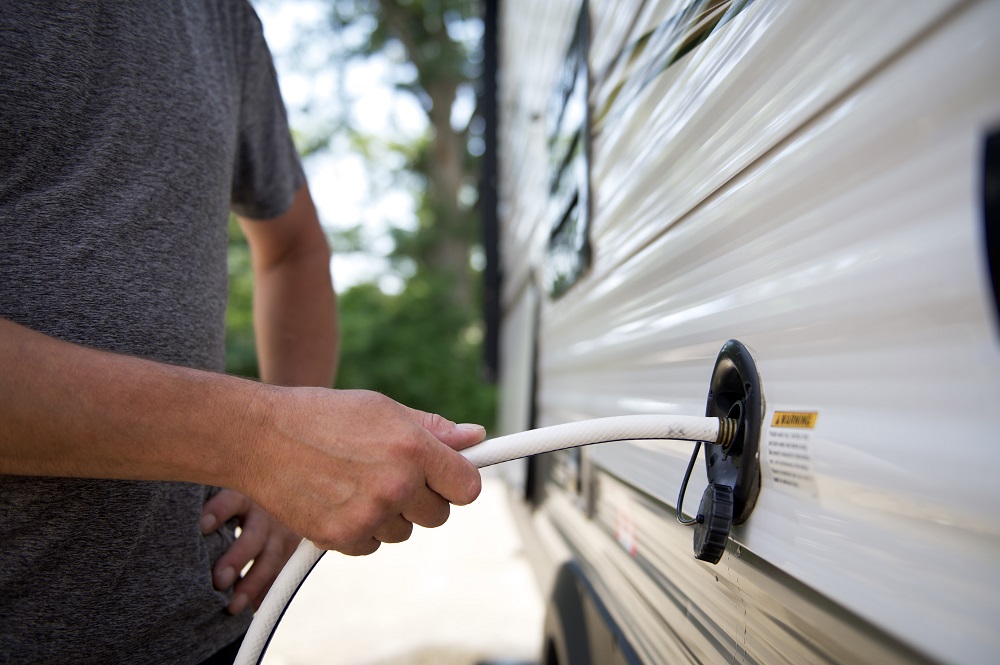
Turn the taps off and ensure the water pump is off.
At this point, you could opt to pump non-toxic antifreeze through the system, but it’s generally not required as long as you get all of the water out of the entire system.
If you do leave water in the hot water heater, you will need to add antifreeze to the system.
~
2. Don’t leave your battery in the cold!
Batteries hate the cold. If you don’t use it at least once per week, frigid temperatures will quickly drain a battery.
Be sure to remove the RV’s house batteries and store them in a cool place.
If you have a basement where the temperature doesn’t drop below 10ºC, you can store them in the basement.
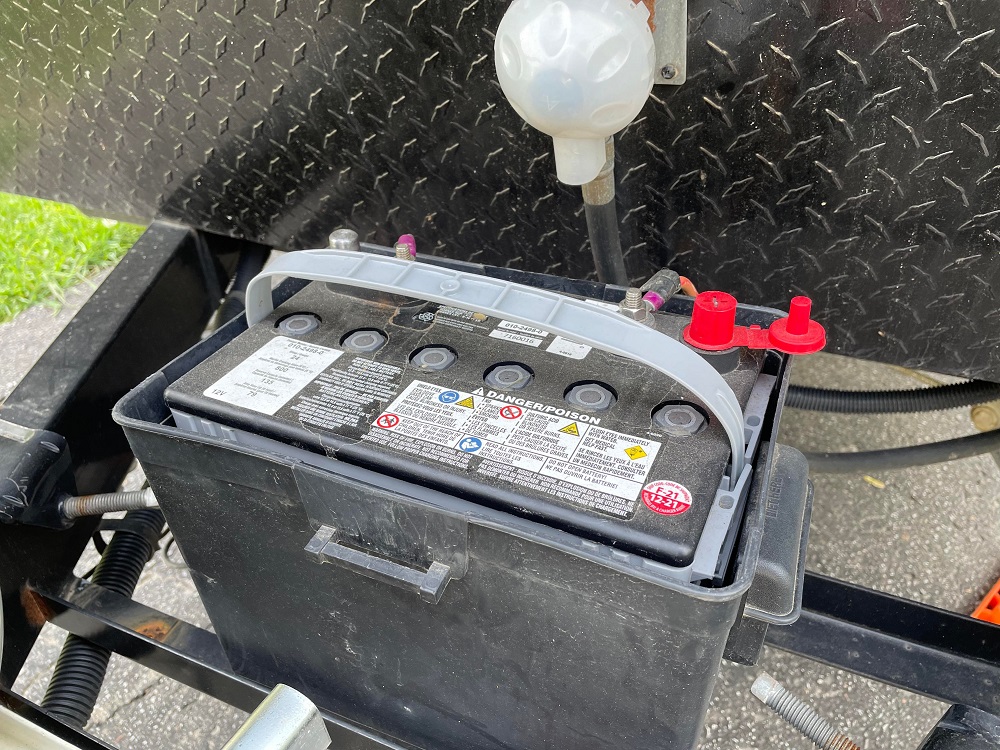
Leave the engine battery in your RV so you can start it every couple of weeks throughout the winter.
If you do have to leave your house batteries in, make sure they are charging when you run the RV. You may have to let the RV run longer than a half hour to make sure all of the batteries charge.
~
3. Mind and maintain your fuel system
If you have a motorized RV, add fuel stabilizer to the fuel tank.
Start the RV and run it for about 10 minutes.
If the RV is diesel, add fuel stabilizer for diesel – be sure the brand you choose keeps the fuel from gelling.
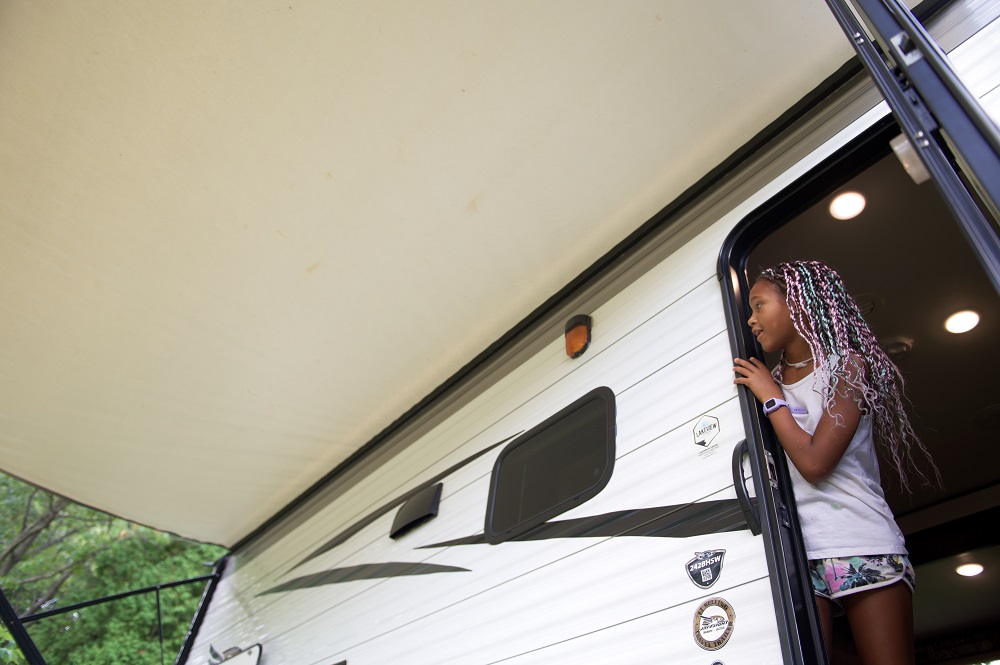
If the fuel gels in the cold, it could be expensive to get the gel out of the system.
Diesel tanks also build up condensation. Keeping the fuel tank full will help reduce condensation formation.
Your best bet is to start your RV every couple of weeks and let it run for about half an hour.
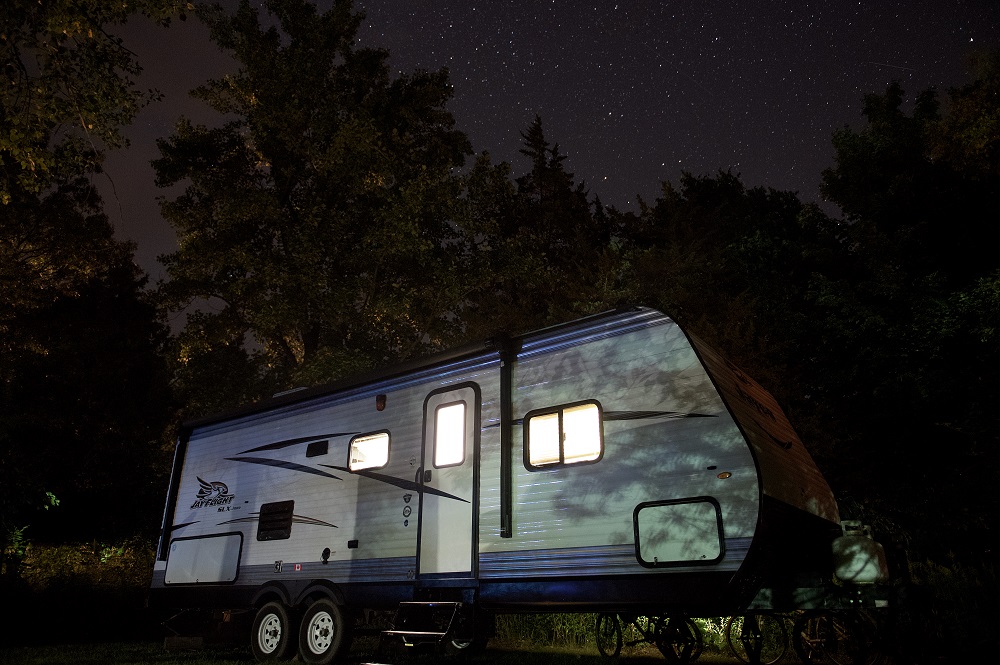
Start the generator while the RV is running to make sure the fuel stabilizer gets through the generator system.
Fuel stabilizer prevents the fuel from breaking down and it prevents deposits from stale fuel from gumming up the fuel system.
~
4. Keep the critters at bay
Mice and bugs will seek a sheltered place to hide out for the winter.
Many RV owners prefer to remove anything that would make an appealing home for such creatures from their units for the winter months.
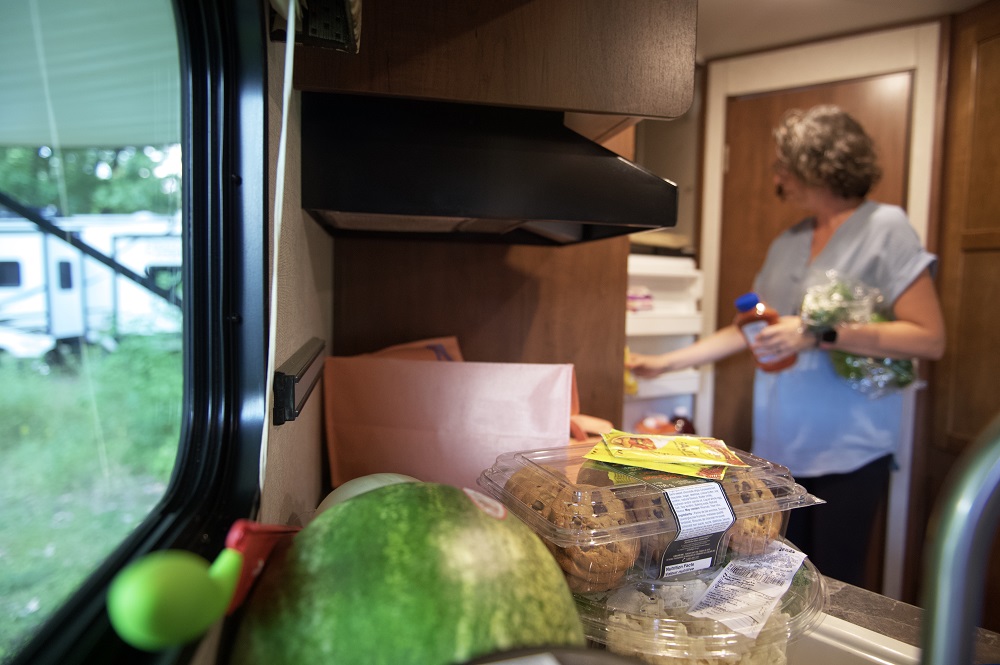
If that is not feasible, try these suggestions:
- ensure tight seals on the storage bins
- put mothballs in the storage bins and lock them
- add mothballs to interior storage such as closets and under-bench storage
- put mothballs in the water heater and refrigerator compartment if they’re accessible from the exterior
- remove all food from the RV, even canned goods
- give the RV a good vacuum to ensure no crumbs are left to tempt any critters
- wash blankets and pillows and store them in plastic bags on the beds or closets
- tie large trash bags tightly to potentially keep the mice from burrowing in your bedding
If you are using mothballs, be aware that they are toxic to cats and dogs, so safe handling is key. When you are removing them from the RV in the spring, you will also need to dispose of the moth balls in accordance with your municipality’s waste program.
Keep in mind that damage from rodents may not be covered on your RV’s insurance policy.
To further prevent bugs, try spraying around the bottom of the RV with bug spray, just as you’d spray your house.
If the bug spray you choose doesn’t discolour your RV (test it in an inconspicuous place) spray around the doors and windows.
~
5. Tires and roof
Cover your RV’s tires with tire covers to protect them from the sun.
Although the sun doesn’t have a lot of heat during the winter, the UV rays could still cause dry rot.
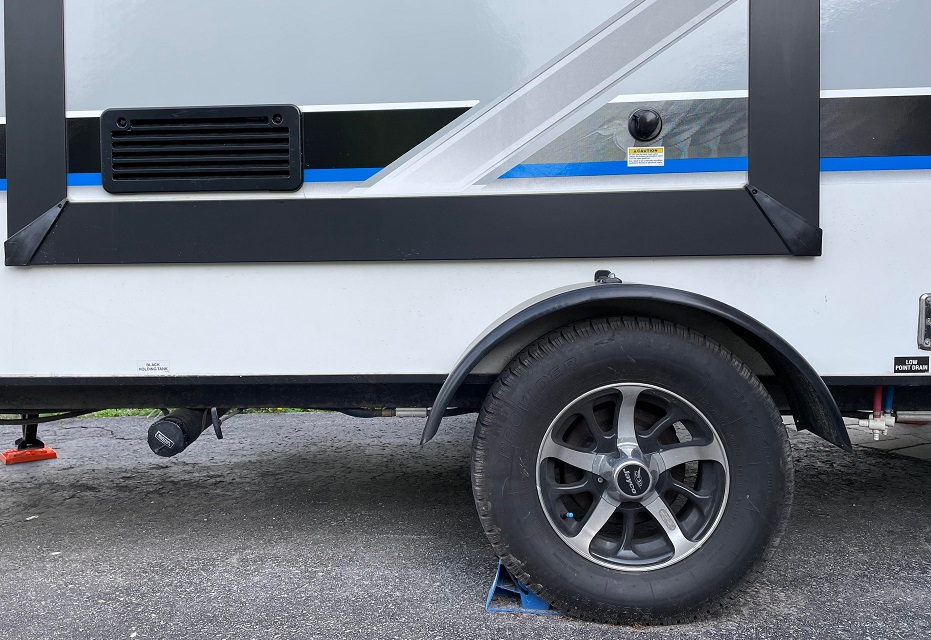
Don’t forget to protect the roof by covering the top of the RV with a tarp.
If there is a heavy snowfall and you are concerned about the amount of snow on the roof of your unit, we recommend hiring a professional to help you out.
~

